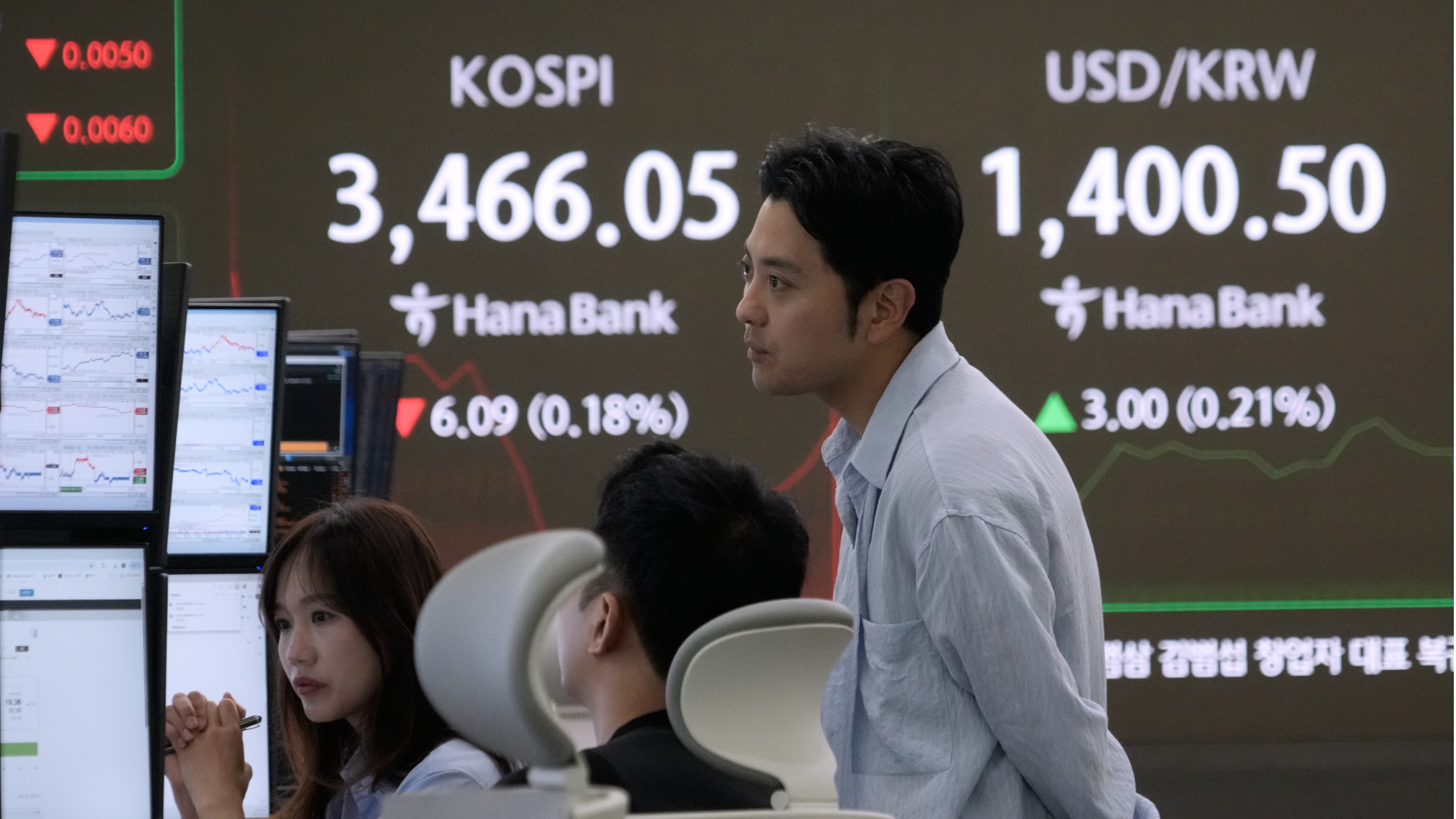
Thousands of South Korean bank employees went on strike and held a rally in central Seoul, pressing for higher pay and a shorter workweek.
Participation fell short of the 80,000 that the Korean Financial Industry Union had expected as unions at some private banks including Shinhan Financial Group opted against joining the strike, according to local media reports. Workers are seeking a 5 percent raise and a workweek of four and a half days. While the proposal doesn’t specify hours, it compares with the current system of five days, capped at 40 hours, with up to 12 hours of overtime.
Workers in T-shirts reading “4.5 days per week changes the future” and shouting the same slogan marched through Gwanghwamun Square, Seoul’s historic civic plaza, carrying banners and placards as songs demanding a shorter workweek blared. Many protesters were wearing red headbands with the word ‘General Strike’ written.
READ MORE: Report warns of S. Korea's debt increase, growth freeze
“Management knows that reducing hours won’t harm the banking industry,” Kim Jin-hong, senior vice-chairman of the Financial Workers’ Union told Bloomberg.
Union members representing staff at the state-backed Industrial Bank of Korea as well as workers at several private lenders had overwhelmingly voted to strike. A large turnout would have put pressure on President Lee Jae-myung, who pledged to promote shorter working hours during his campaign but said in July that he would not implement it until there is broad social consensus.
The last industry-wide bank strike was held in 2022 and drew about 9,800 participants, or about 9.4 percent of the sector’s workforce. That resulted in banks reducing business hours by one hour during the COVID-19 pandemic, but regular hours were reinstated in 2023.
Korea has long been known for marathon office hours and a relentless corporate culture. In 2023, Koreans averaged 1,872 hours of work, the seventh-longest among members of Organisation for Economic Co-operation and Development. Union leaders argue that a shorter week is vital to curb burnout and help reverse the nation’s plunging birthrate. South Korea’s fertility rate of 0.75 births per woman is the lowest in the world, with the population projected to shrink by almost a third by 2072 if current trends continue.
South Korean productivity lags that of the US, Germany and the Netherlands. In 2023, Korean workers generated $54.64 of GDP per hour, the 10th lowest among OECD countries, compared with $97.05 in the US and $93.72 in Germany, according to OECD data.
Japan, which is also struggling with record-low birth rates, has introduced some workplace flexibility. According to local media, some local Japanese governments and private companies now offer four-day workweeks and other options to help employees balance work and family.
READ MORE: S. Korea issues verbal intervention over forex market volatility
Unions are also pressing an extension of the retirement age, demands that reflect mounting worker pushback across corporate Korea. The debate has already played out at South Korea’s biggest employers.
Samsung Electronics Co and its chipmaking rival SK Hynix Inc recently struck wage agreements with their unions, ending disputes that threatened to disrupt production. Their settlements highlight how labor tensions are becoming a recurring theme, even in industries critical to the export-driven economy.
The Labor Ministry plans to propose a bill later this year to lay the groundwork for a shorter workweek, introducing tax credits and other incentives for firms starting next year.


